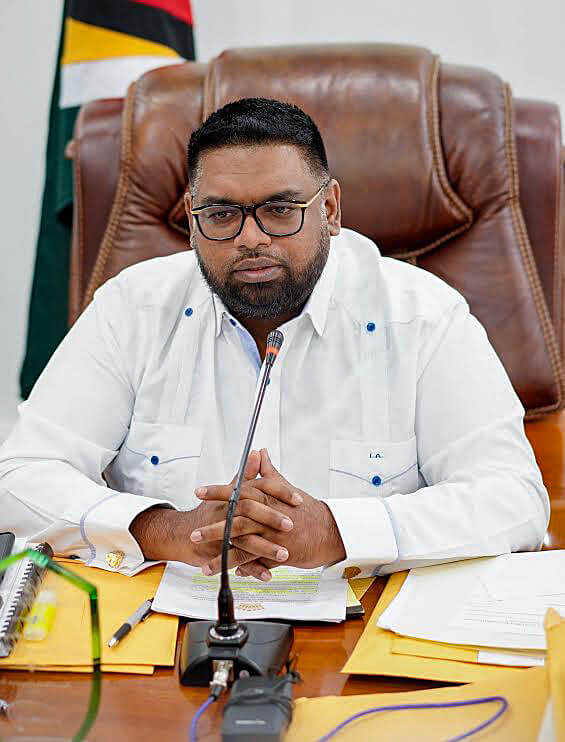If there were any doubts about Guyana becoming an important, hemispheric geo political player, these were erased this week when a high level US House Ways and Means Committee delegation spent three days in the country tying up American energy security arrangements and laying the groundwork to push out any Chinese ambitions in this area.
Successive American administrations have been paying increased attention to the CARICOM headquarter nation ever since world class deposits of oil and gas were found offshore Guyana in 2015 by an international consortium that includes supermajor ExxonMobil, Hess Corporation of the US and China Oil (CNOOC).
Current production is hovering at around 300,000 barrels per day but in less than three years, daily output is expected to top 1.2 million barrels of oil from at least three producing oil fields. The consortium is planning to develop several more and could have up to 10 huge floating storage ships on the water from which export ships will load their cargo for international markets. So as far as the Americans are concerned officials say, the ability of Guyana to produce large quantities of oil immediately and natural gas in the very near future makes Guyana an important player, one that can contribute to American energy security in the hemisphere. Current estimates for oil in the Guyana portion of the Guyana-Suriname basin have been placed at over 11 billion barrels with millions of cubic feet of gas waiting to be tapped.
“Don’t forget that apart from the plans to produce 1.2 million barrels in a few years, there is also natural gas. Those are two long hanging fruits right there and this could be in benefit to the US and the hemisphere. That is where we see our strategic role, a strategic partnership with the US. The US is a strong and committed partner in several areas including trade, democracy, food security, climate change and a host of other areas. Our natural gas can play an important role,” Foreign Secretary Robert Persaud told this publication at the weekend.
Persaud spoke hours after President Irfaan Ali had told the delegation, led by Chairman Jason Smith (R-Missouri), that Guyana stands ready to assure American energy security. ”I even asked the congressional delegation to ensure that Guyana and the US can advance the strategic partnership formally on energy security for the United States and Guyana and climate security and on food security. Guyana is an important part of the energy mix in this region and the world,” Ali said.
The head of state labeled the US as a “trusted partner,” while clearly signaling that more American businesses should invest in Guyana.
“Guyana is and will continue to be an important strategic partner of the United States and the opportunities here are open to all and open to the United States and your private sector and we want to see greater participation from the US private sector and the US here in Guyana. There is no second-guessing this agenda. This is a clear strategy of the government.”
The delegation also met with opposition lawmakers on the Guyana leg of their three-nation tour that also included Ecuador and Mexico, all oil producers.
Authorities here have been under some pressure to assure Washington that they do not favor China and Chinese businessmen more than Americans as the Chinese have won numerous, large state contracts much to the chagrin of the Americans in recent years.
The Guyana oil and gas sector, meanwhile, will soon attract even greater global attention and gain importance when bids for 14 additional blocks near Exxon’s very productive Liza Fields are revealed next month. Guyana late last year placed the blocks up for auction and already there are indications that all the major global players have indicated strong interest.
For his part Representative Smith said that “China also is participating in Guyana’s oil production. America must be committed to outcompeting China around the world while strengthening key American supply chains, increasing U.S. production of affordable energy resources, and improving partnerships with allies in the Western Hemisphere and beyond. Our delegation’s meetings have shown how U.S. bilateral relationships in the region benefit American workers and provide a much-needed alternative to countries that might otherwise orient their economies toward China.”


























